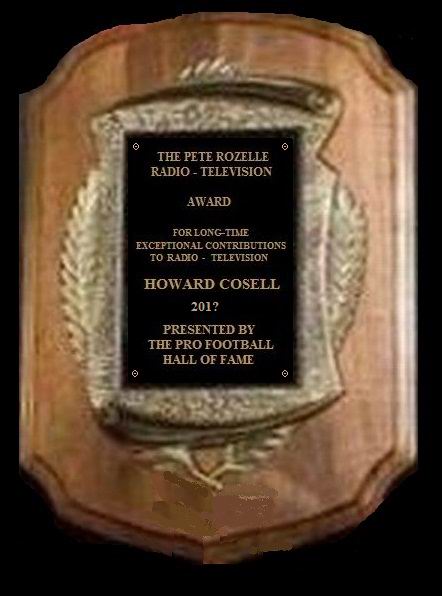
/arc-anglerfish-arc2-prod-dmn.s3.amazonaws.com/public/VUGURFOMVMWL43YB7J2J665SVY.jpg)

After waiting so long for his break, Cosell pursued stardom with a vengeance, bringing the big guns of his scathing, contrarian wit and bludgeoning pomposity to bear on sport's stuffed shirts, such as International Olympic Committee head Avery Brundage and baseball commissioner Bowie Kuhn. He finally found it in 1956 with a radio show, "Speaking of Sports," sponsored by a relative who owned a shirt company. Born in 1918 to Isidore and Nellie Cohen, and raised in Brooklyn, Cosell studied law at NYU and floundered for years, trying to find his niche. Even Woody Allen was a fan, giving Cosell guest spots in three of his movies - playing himself, of course.Īrrogant, tempestuous and ambitious, Cosell dragged sports journalism kicking and screaming into an era when electronic media replaced print. He had done no less than make himself a one-man industry by turning scabrousness into an endearment," but that must have been the way we felt about Cosell, because even when we cursed him we kept on watching. It may seem Cosell-like hyperbole when Ribowsky writes, "There can be no overestimating how unique, and even unprecedented, Cosell's fame was by the middle of the 1970s.

"Howard Cosell: The Man, the Myth, and the Transformation of American Sports" is an exhilarating look back at a man and a time that are inextricably entwined. (Was there an American male who watched "Monday Night Football" from its inception in 1970 to Cosell's final broadcast in 1983 who didn't do an impression of the man?)īut Ribowsky also gained something: perspective. A generation has grown up thinking that ESPN's Chris Berman invented Cosell's signature call - "He could. Mark Ribowsky (author of a superb book on Satchel Paige) may have lost something by waiting so long after Cosell's death in 1995.


 0 kommentar(er)
0 kommentar(er)
